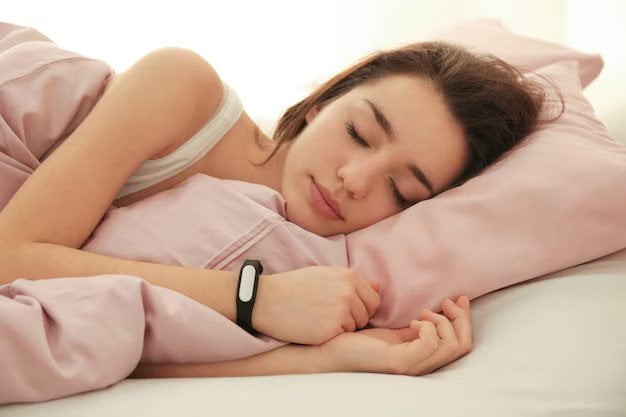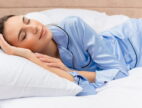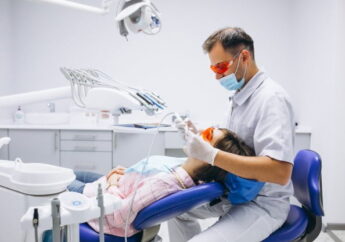What Does It Mean When You Drool In Your Sleep?
by Arnab Dey Health Care Services Published on: 28 February 2023 Last Updated on: 08 November 2024

Drooling in your sleep is surprisingly common. In fact, up to 40% of adults and 70% of children drool while they sleep. But what does it actually mean when you drool in your sleep?
In this blog post, we’ll take a look at the medical explanations behind why some people drool in their sleep and what it could mean for your health. We’ll also discuss some tips on how to reduce drooling while sleeping, as well as other things you can do if you are concerned about your health. So read on to learn more!
What Is Drooling?
Drooling is the act of producing saliva and letting it escape from your mouth. It can happen when you sleep, talk, or simply just sit still. Although most often associated with infants and young children, drooling can affect people of any age.
There are many reasons why you might drool. If you drool while you sleep, it could be due to a change in your sleep position, teeth grinding, or even allergies. If you’re talking, laughing, or eating, drooling is also common. And if you have an excess buildup of saliva in your mouth for any reason, that can cause drooling as well.
Whiledroolingisn’t generally harmful, it can be embarrassing and inconvenient. If you’re concerned about your drooling habit, talk to your doctor to find out the underlying cause and explore possible treatment options.
Why Do People Drool While They Sleep?

There are a few reasons why people might drool while they sleep. One reason is that the person may be suffering from sleep apnea, which is a condition that can cause heavy breathing and snoring.
Sleep apnea can also cause the person to have pauses in their breathing, which can lead to drooling. Another reason why someone might drool while they sleep is if they are taking certain medications, such as those for Parkinson’s disease or allergies.
These medications can cause dry mouth, which can lead to drooling. Finally, some people simply have a tendency to drool while they sleep due to the position of their tongue or teeth.
Regardless of the cause, it is important to stay hydrated and avoid sleeping with your mouth open in order to reduce drooling. In any case, if you are concerned about your drooling while you sleep, it’s best to discuss it with your doctor.
Related: When Should You Visit A Sleep Clinic?
Is Drooling A Sign Of A Medical Condition?
Most of the time, drooling while you sleep is normal and nothing to worry about. However, in some cases it can be a sign of a medical condition, such as:
- Allergies: If you have seasonal allergies or are allergic to something in your environment (like dust or pet dander), this can cause you to drool while you sleep.
- Nasal Congestion: If your nose is blocked or congested from a cold or sinus infection, this can also lead to drooling at night.
- GERD: Gastroesophageal reflux disease (GERD) is a condition where stomach acid backs up into the esophagus, and sometimes even into the throat. This can cause irritation and inflammation, leading to increased saliva production and drooling while asleep.
- Sleep apnea: This is a serious sleep disorder that occurs when breathing is interrupted during sleep. It can cause snoring and gasping for air, as well as excessive saliva production and drooling.
How Can I Stop Drooling While I Sleep?
There are a few things you can do to stop drooling while you sleep:
- Elevate your head with pillows while you sleep. This will help keep the saliva from pooling in your mouth.
- Sleep on your back instead of your stomach or side. This will also help to keep the saliva from pooling in your mouth. Also, try to place a pillow under or between knees to get deep sleep this way, you may not have the tendency to drool.
- Try sleeping with a humidifier. The moisture can help to keep the saliva from drying out in your mouth and causing you to drool.
- Avoid eating spicy or acidic foods before bed, as these can irritate the tissues in your mouth and make you more likely to drool.
- If you wear dentures, make sure they fit properly and are not irritating your gums or causing you to produce excess saliva.
Conclusion
In conclusion, drooling during sleep can be a sign of several medical issues. It’s important to keep an eye on your drooling habits so that you can recognize if something is wrong and get the proper treatment. If you experience excessive or persistent drooling in your sleep, it’s best to consult with a doctor as soon as possible.
Remember, it’s always better to catch any potential issues early rather than wait until they become serious health problems. In summary, drooling in your sleep is surprisingly common and can be the result of several medical issues.
If you’re concerned about your drooling habits, it’s best to talk to your doctor to determine the underlying cause and explore possible treatment options. Additionally, there are several steps you can take to reduce drooling while sleeping, such as elevating your head with pillows and avoiding eating spicy or acidic foods before bed.
Read Also:



































































































